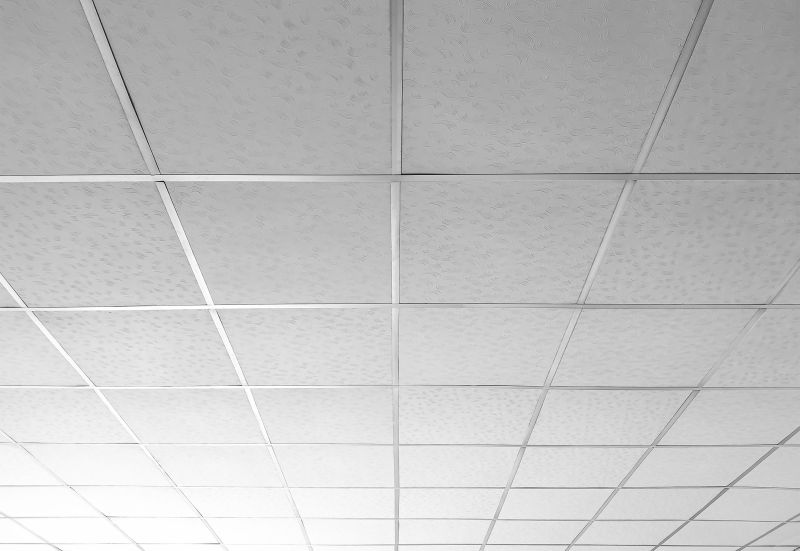Leading Products for Tile Ceiling Installations You Can Trust
Discover essential tools and materials that simplify your tile ceiling projects and ensure professional results.
 Installing tiles on a ceiling can transform the aesthetic and acoustics of a space, offering a durable and visually appealing surface. The process involves selecting appropriate materials and tools that can handle the weight and installation requirements of ceiling tiles. A variety of products are available to assist in the secure and efficient installation of tile ceilings, ranging from specialized adhesives to framing systems. Proper preparation and understanding of the different product options can help ensure a successful project, whether for residential or commercial spaces.
Installing tiles on a ceiling can transform the aesthetic and acoustics of a space, offering a durable and visually appealing surface. The process involves selecting appropriate materials and tools that can handle the weight and installation requirements of ceiling tiles. A variety of products are available to assist in the secure and efficient installation of tile ceilings, ranging from specialized adhesives to framing systems. Proper preparation and understanding of the different product options can help ensure a successful project, whether for residential or commercial spaces.
Top Overall Option
Comprehensive Ceiling Tile Installation Kit
A complete installation kit typically includes a variety of essential components such as suspension grids, mounting clips, adhesive options, and necessary tools. These kits are designed to simplify the installation process by providing all the fundamental parts in one package, ensuring compatibility and reducing the need for multiple purchases. Suitable for DIY enthusiasts and professionals alike, a well-rounded kit can support different tile types and installation scenarios, offering versatility and convenience.
Types of Products For Tile Ceiling Installations
Suspension Grid Systems
Metal or plastic grid frameworks that support ceiling tiles and provide a suspended ceiling structure.
Ceiling Tile Adhesives
Specialized adhesives formulated for bonding tiles to ceilings, suitable for various tile materials.
Corner and Edge Trims
Trim pieces that create clean edges and transitions around the perimeter of the ceiling.
Mounting Clips and Hooks
Hardware used to securely attach tiles or grid components to the ceiling structure.
Cutting Tools
Tools such as utility knives, saws, or specialized cutters designed for precise tile shaping.
Leveling Devices
Tools to ensure tiles and grid components are aligned accurately during installation.
Acoustic Insulation Panels
Insulation panels that can be integrated with tiles to improve sound absorption.
Lighting Integration Components
Recessed lighting fixtures and mounting hardware compatible with tile ceilings.
Fire-Resistant Tiles
Tiles made from fire-resistant materials for enhanced safety in commercial settings.
Vapor Barriers
Moisture-resistant barriers that can be installed behind tiles in humid environments.
Support Wires
Wires used to suspend and support ceiling grid components for added stability.
Popular Choices
Pre-packaged kits that include grids, clips, and support wires for straightforward installation.
Tiles designed to reduce noise and improve room acoustics, available in various styles.
Lightweight, water-resistant tiles suitable for kitchens and bathrooms.
Durable tiles that add a modern industrial look and are often used in commercial spaces.
Heavy tiles that provide a sophisticated aesthetic, often requiring specialized adhesives and support systems.
Panels with perforations that enhance sound absorption while adding decorative appeal.
Lighting options designed to integrate seamlessly with tile ceilings for modern illumination.
Tiles made with fire-resistant materials suitable for safety-critical environments.
Moisture control layers that can be installed behind tiles in humid or damp areas.
Various grid parts such as main tees, cross tees, and wall angles for constructing a suspended ceiling.
Wires that allow for height adjustments and secure suspension of ceiling grids.
Choosing the right products depends on factors such as ceiling height, tile material, and the desired finish. For instance, lightweight foam tiles may require different mounting solutions compared to heavy ceramic or stone tiles. Installation accessories like suspension grids, clips, and adhesives are designed to provide stability and ease of assembly. Additionally, tools such as cutting devices and levelers can help achieve a precise and professional appearance.
Safety considerations are also important when working with ceiling tiles and installation products. Ensuring proper ventilation, using protective gear, and following manufacturer instructions can help prevent accidents and ensure the longevity of the installation. It is advisable to plan the layout carefully, measure accurately, and select compatible products to avoid issues such as misalignment or sagging over time.
Overall, the selection of products for tile ceiling installations should be guided by the specific requirements of the space and the type of tiles being used. Investing in quality materials and tools can facilitate a smoother installation process and result in a durable, attractive ceiling finish that enhances the overall ambiance of the room.
Key Buying Considerations
- Type of ceiling tiles suitable for your environment (e.g., moisture-resistant, acoustic, decorative).
- Weight of tiles and compatibility with support systems to ensure safety and durability.
- Ease of installation, including whether the product is DIY-friendly or requires professional help.
- Compatibility of adhesives and mounting hardware with the tile material and ceiling structure.
- Availability of accessories like trims, edge moldings, and lighting fixtures for a finished look.
- Sound absorption and acoustic properties if noise reduction is a priority.
- Fire safety ratings and compliance with relevant building codes.
- Moisture resistance for areas prone to humidity or water exposure.
- Aesthetic options including colors, patterns, and finishes to match interior design.
- Cost considerations and availability of complete kits versus individual components.
- Durability and long-term stability, especially in high-traffic or commercial settings.
- Compatibility with existing ceiling infrastructure or the need for new framing.
- Tools required for installation and whether additional equipment is necessary.
- Maintenance requirements and ease of cleaning or replacing tiles.
- Environmental conditions such as temperature fluctuations that might affect materials.
